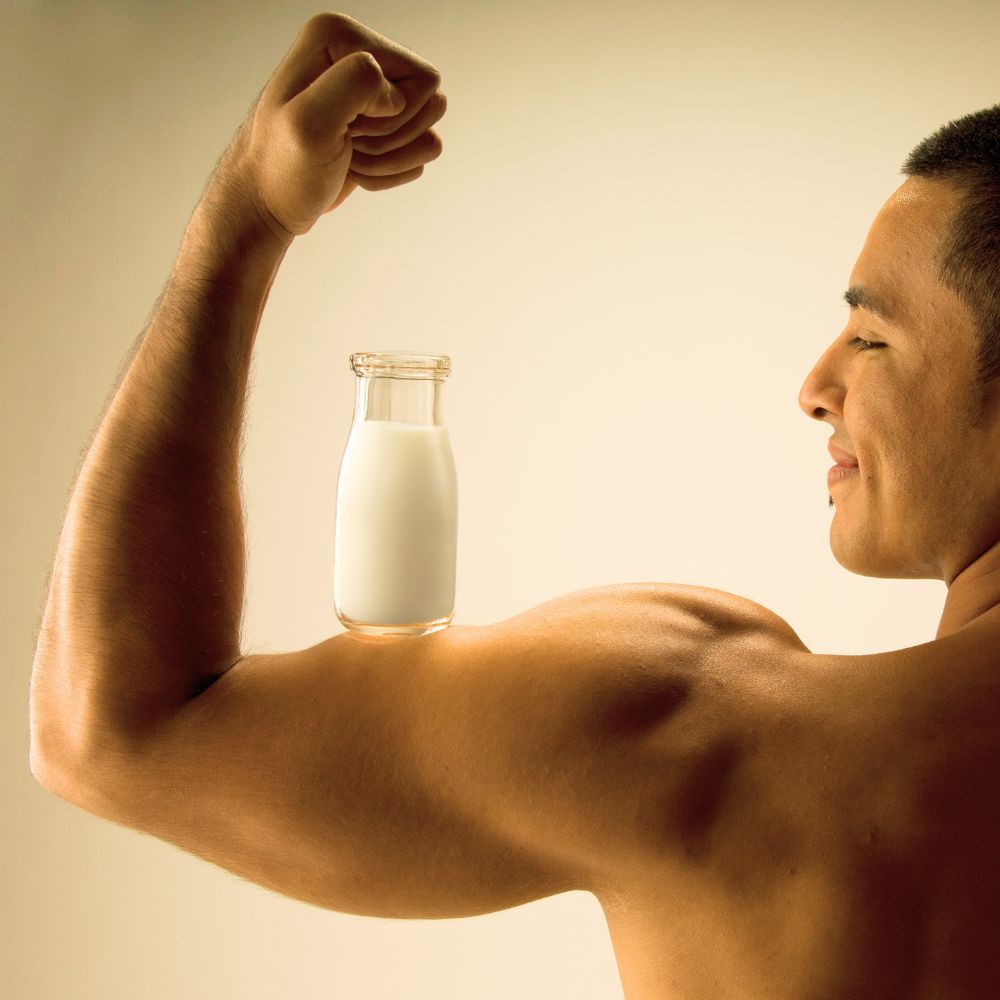When it comes to optimizing muscle growth and recovery, nutrition plays a crucial role. Among various dietary choices, whole milk has garnered attention for its potential benefits in promoting muscle development. Not only is it nutrient-dense, but it also serves as an excellent base for delicious protein shakes. Here’s how whole milk can support your fitness goals, who may benefit from it, and five tasty protein shake recipes.
Nutritional Profile of Whole Milk
Whole milk is rich in essential nutrients that can aid in muscle growth:
- High Protein Content: Approximately 8 grams of protein per 8-ounce serving, featuring both whey and casein.
- Healthy Fats: About 8 grams of fat per serving, providing energy and helping with the absorption of fat-soluble vitamins.
- Calcium and Vitamin D: Crucial for bone health and muscle function.
- Carbohydrates: Contains lactose, offering a quick source of energy, especially beneficial post-workout.
Benefits of Whole Milk for Muscle Growth
1. Supports Muscle Repair
The protein in whole milk, particularly the combination of whey and casein, provides the essential amino acids required for muscle recovery.
2. Caloric Density
Whole milk is calorically dense, making it easier to increase overall calorie intake, especially for those with high energy expenditures.
3. Convenient and Versatile
Whole milk can be consumed on its own or as a base for various recipes, making it easy to incorporate into your diet.
4. Promotes Hormonal Balance
The fats in whole milk can help produce hormones like testosterone, which is crucial for muscle growth.
5. Hydration
Whole milk contains a significant amount of water, contributing to hydration, especially after intense workouts.
Who May Benefit from Whole Milk?
Whole milk can be particularly beneficial for:
- Athletes and Bodybuilders: Those who require higher calorie and protein intakes for muscle growth and recovery can benefit from the nutrient density of whole milk.
- Individuals Looking to Gain Weight: For those trying to increase their calorie intake for weight gain, whole milk offers an easy way to add extra calories without excessive volume.
- Active Individuals: People with high energy expenditures, such as those who engage in regular intense workouts, may find whole milk helpful for meeting their nutritional needs.
- People in Need of Nutrient-Dense Options: Whole milk can be a good choice for individuals looking to enhance their overall nutrition, especially when combined with other healthy foods.
5 Whole Milk Protein Shake Recipes
Here are five protein shake recipes using whole milk that are not only delicious but also great for muscle growth:
1. Chocolate Banana Protein Shake
Ingredients:
- 1 cup whole milk
- 1 ripe banana
- 2 tablespoons chocolate protein powder
- 1 tablespoon peanut butter
- Ice cubes (optional)
Instructions: Blend all ingredients until smooth. Enjoy the rich flavor and muscle-repairing nutrients!
2. Berry Blast Protein Shake
Ingredients:
- 1 cup whole milk
- 1/2 cup mixed berries (frozen or fresh)
- 1 scoop vanilla protein powder
- 1 tablespoon honey or maple syrup (optional)
Instructions: Blend all ingredients until smooth. This shake is packed with antioxidants and great for recovery!
3. Green Protein Shake
Ingredients:
- 1 cup whole milk
- 1 cup spinach (fresh or frozen)
- 1 banana
- 1 scoop vanilla or unflavored protein powder
- 1 tablespoon chia seeds
Instructions: Blend until smooth. This nutrient-rich shake is perfect for a post-workout boost!
4. Coffee Protein Shake
Ingredients:
- 1 cup whole milk
- 1 cup brewed coffee (cooled)
- 1 scoop chocolate or vanilla protein powder
- 1 tablespoon cocoa powder (optional)
- Ice cubes
Instructions: Blend until frothy. This shake is a perfect pick-me-up before or after workouts!
5. Peanut Butter Oatmeal Shake
Ingredients:
- 1 cup whole milk
- 1/2 cup rolled oats
- 2 tablespoons peanut butter
- 1 tablespoon honey
- 1/2 banana
- Ice cubes
Instructions: Blend all ingredients until smooth. This shake offers a hearty dose of energy and nutrients for muscle growth!
Considerations
While whole milk offers numerous benefits, consider individual dietary needs:
- Lactose Intolerance: Those who are lactose intolerant may want to opt for lactose-free alternatives or other protein sources.
- Caloric Intake: For those aiming for fat loss, the higher calorie content of whole milk may not align with their goals.
Conclusion
Whole milk can be a beneficial addition to a muscle-building diet, thanks to its high protein content, healthy fats, and essential nutrients. With these five delicious protein shake recipes, you can easily incorporate whole milk into your routine and support your muscle growth journey. Enjoy these shakes as post-workout recovery drinks or as part of your daily nutrition!

